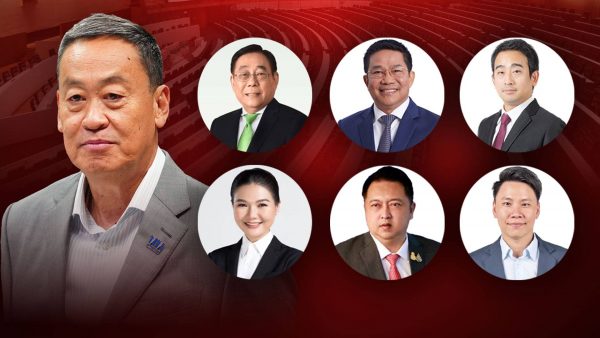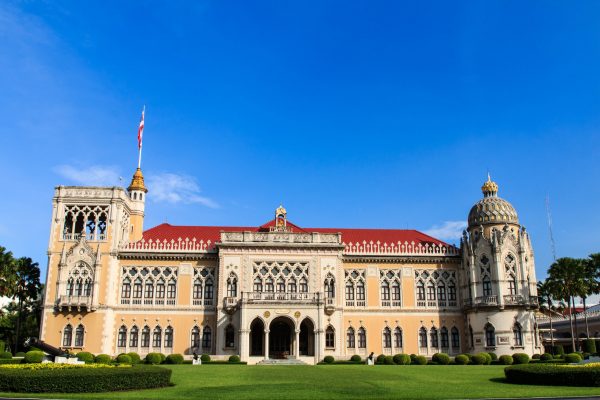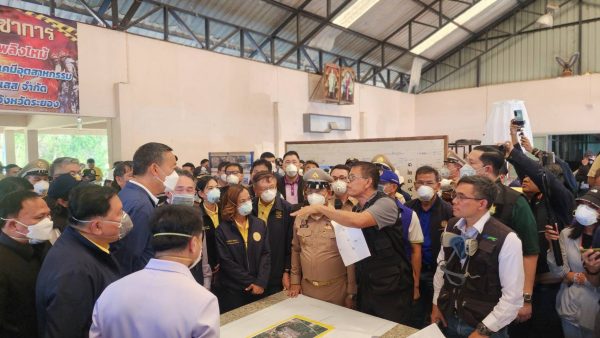‘No curb on inequality’: Experts say huge rich-poor divide will remain under new govt

Prime Minister Srettha Thavisin’s vow to curb generational poverty has failed to convince several experts, who point out that his government policies are mainly designed for short-term economic gains.
“If you examine the ruling Pheu Thai Party’s policies, you see that they are only aimed at stimulating the economy. Economic stimulus does not equate to ending poverty,” said Nitirat Sapsomboon, coordinator for the WeFair network.
WeFair advocates policies to curb social and economic inequality and enhance access to social welfare.
Pheu Thai’s mindset is dominated by capitalism and private business, Nitirat said. The ruling party seems to think that if it can grow the economy to create “a bigger cake”, everyone will benefit, he added.
“But if Pheu Thai continues on this path, it won’t be able to curb inequality. The government needs to understand that boosting people’s income is not the solution to [structural] inequalities.”
What is the government’s plan?
The Srettha-led government has highlighted policies to solve debt problems of farmers, businesses, and people; lower their energy expenses; generate more income via tourism; and create opportunities to raise incomes and quality of life for people. To spur the economy at community level, it will hand 10,000 baht to each adult citizen via the digital wallet scheme, while also promoting soft power. It hopes that these and other policies will raise GDP growth from the current rate of 2.6% to 5%.
The ruling party and its coalition partners had promised to improve social welfare via monthly subsidies for the elderly, people with disabilities, and children, as well as raising the minimum wage, Nitirat said.
However, the government’s policy statement in early September did not address these topics in detail, he added.
“So, I am not sure if what they said during the election campaign remains valid.”
Full of inequalities
Inequality has long been a problem in Thailand, with statistics showing a massive gap in assets between the richest few and the poor majority. The country’s biggest landlord owns as much as 631,263 rai (over 1,000 square kilometers) of land, while countless farmers remain landless.
According to the annual Global Wealth Report by Credit Suisse, over half of Thai adults (53.6%) are worth less than US$10,000. Another 43.8% have assets of between $10,000 and $100,000. That leaves just 2.5% who own between $100,000 and 1 million dollars of assets. Those worth over 1 million dollars account for 0.2% of the Thai population.
Thailand was named as the most unequal country in the world in the Swiss banking giant’s 2018 survey.
In comparison, almost half (49.2%) of Taiwan’s populace are worth $100,000 to $1,000,000 while just 13.1% have less than $10,000. One-third (33.3%) have assets of between $10,000 and $100,000. About 4.4% own fortunes of over 1 million dollars.
“From 2009 to 2022, the wealth of Thailand’s 40 richest people grew by 5.7 times to $143 billion,” Nitirat commented. “At the same time, about 2.9 million Thai children lived in families where each member had 2,577 baht on average to live on per month.”
About 4.4 million Thais live below the poverty line, which is set at 2,803 baht per month. Another 4.84 million Thais are equally poor – earning no more than 3,000 baht a month.
“The percentage of families in severe poverty is highest in the South,” Nitirat added.
His data is in line with findings from the latest countrywide study conducted by the National Statistical Office and UNICEF. Released on September 27, the study shows children in Thailand’s southern provinces continue to face critical disadvantages and are lagging behind their peers in areas including nutrition, immunization, school attendance and learning skills.
Immunization is a particular area of concern in the deep South. The report found that 83% of one-year-old children across the country are fully immunized against diseases such as measles, polio and tuberculosis. But immunization is much lower in the South, standing at 44%, 29% and 27% in Yala, Narathiwat and Pattani respectively.
Children living in the South also experience the highest rates of malnutrition, which can harm their development and well-being throughout their lives. According to the survey, the stunting rate among children under five years old in Ranong province is 26%, which is double the national average of 13%. The rates are also alarmingly high in Yala, Pattani and Narathiwat, all at 20%.
Policy recommendations
Nitirat said WeFair is pushing for nine key policies to ensure proper welfare for the Thai population. They are:
– A 3,000-baht monthly subsidy for each of the 17.1 million Thai children up to the age of 18; free education from kindergarten to secondary levels for 9.2 million Thais
– Equality of healthcare coverage for all Thais under the same standard
– Ensuring 25 million families have access to affordable, quality housing
– Expanding the social security scheme to cover all 39 million Thais
– A monthly subsidy of at least 3,000 baht for retirees, with the amount adjusted in line with inflation
– Inclusive welfare for 17 million women and people with physical disabilities
– Tax reform to distribute wealth more equably for a fairer society
“Such welfare moves will strengthen society,” Nitirat said.
Little hope for better welfare, fairer society?
Sustarum Thammaboosadee, a lecturer at Thammasat University and an expert in the field of state welfare, said Pheu Thai had formed a government of old power cliques whose focus is unlikely to be on welfare policies. Gone are the days when, as the Thai Rak Thai Party it introduced the revolutionary 30-baht medical scheme, a precursor to the much-praised universal healthcare coverage, and under Yingluck Shinawatra’s government pushed for higher elderly subsidies, she added.
“Based on interviews now being given by key figures, Pheu Thai apparently thinks that implementing its welfare policies may be too expensive and take too much time,” the academic commented.
Deputy Finance Minister Julapun Amornvivat, a senior Pheu Thai politician, told Parliament during the policy statement session that it was time for everyone to wake up from the ‘welfare dream’ and return to reality.
“We must understand that Thailand’s structure, GDP ratio, and income are very different from those of welfare states like Sweden, Finland, and Norway,” Julapun said. “We really can’t provide universal welfare.”
By Thai PBS World’s General Desk






